BYD Han vs Nissan Leaf – Differences & prices compared
Compare performance, boot space, consumption and price in one view.
Find out now: which car is the better choice for you – BYD Han or Nissan Leaf?
The BYD Han (Sedan) comes with a Electric engine and Automatic transmission. In comparison, the Nissan Leaf (Hatchback) features a Electric engine with Automatic transmission.
When it comes to boot capacity, the BYD Han offers 410 L, while the Nissan Leaf provides 394 L – depending on how much space you need. If you’re looking for more power, decide whether the 517 HP of the BYD Han or the 217 HP of the Nissan Leaf suits your needs better.
In terms of consumption, the values are 18.50 kWh per 100 km for the BYD Han, and 16.70 kWh for the Nissan Leaf.
Price-wise, the BYD Han starts at 59200 £, while the Nissan Leaf is available from 30800 £. Compare all the details and find out which model fits your lifestyle best!
BYD Han
The BYD Han is a sleek electric vehicle that elegantly combines innovation and style. Its design features smooth lines and a sophisticated interior that highlight modern luxury. With advanced technology and impressive performance, it represents a significant step forward in the world of electric cars.
details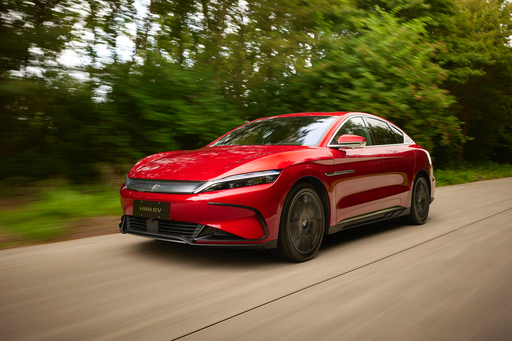 @ press.bydauto.be
@ press.bydauto.be
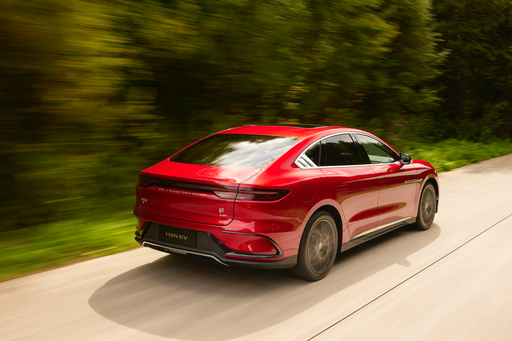 @ press.bydauto.be
@ press.bydauto.be
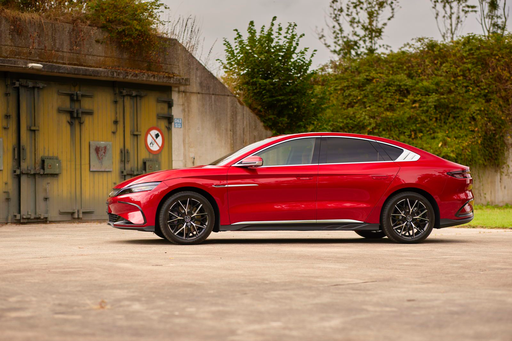 @ press.bydauto.be
@ press.bydauto.be
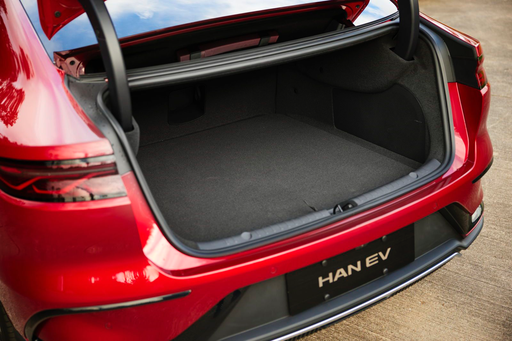 @ press.bydauto.be
@ press.bydauto.be
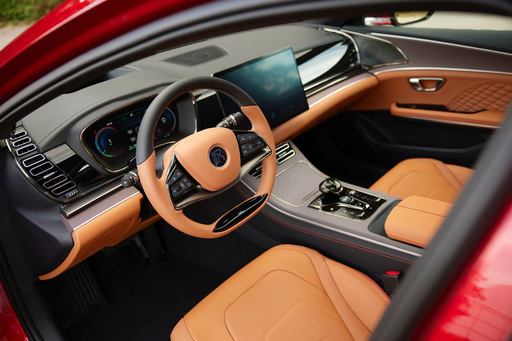 @ press.bydauto.be
@ press.bydauto.be
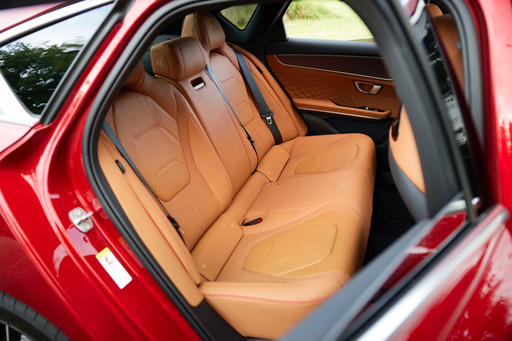 @ press.bydauto.be
@ press.bydauto.be
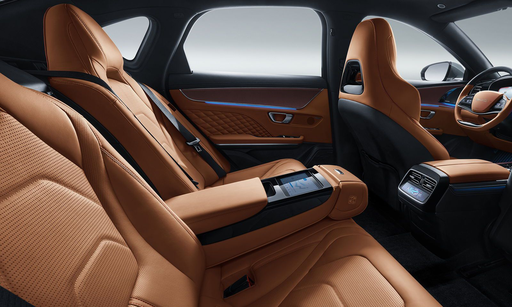 @ press.bydauto.be
@ press.bydauto.be
Nissan Leaf
The Nissan Leaf stands out as a pioneering model in the realm of electric vehicles, known for its impressive blend of practicality and eco-friendliness. It offers a smooth and quiet driving experience, making it an ideal choice for city commuting and longer journeys alike. The interior design is both comfortable and intuitive, providing drivers with a sense of modernity and ease of use.
details @ germany.nissannews.com
@ germany.nissannews.com
 @ germany.nissannews.com
@ germany.nissannews.com
 @ germany.nissannews.com
@ germany.nissannews.com
 @ germany.nissannews.com
@ germany.nissannews.com

|

|
|
|
|
Costs and Consumption |
|
|---|---|
|
Price
59200 - 62200 £
|
Price
30800 - 37200 £
|
|
Consumption L/100km
-
|
Consumption L/100km
-
|
|
Consumption kWh/100km
18.50 kWh
|
Consumption kWh/100km
16.7 - 17.8 kWh
|
|
Electric Range
521 km
|
Electric Range
270 - 385 km
|
|
Battery Capacity
-
|
Battery Capacity
39 - 59 kWh
|
|
co2
0 g/km
|
co2
0 g/km
|
|
Fuel tank capacity
-
|
Fuel tank capacity
-
|
Dimensions and Body |
|
|---|---|
|
Body Type
Sedan
|
Body Type
Hatchback
|
|
Seats
5
|
Seats
5
|
|
Doors
4
|
Doors
5
|
|
Curb weight
2325 kg
|
Curb weight
1580 - 1756 kg
|
|
Trunk capacity
410 L
|
Trunk capacity
385 - 394 L
|
|
Length
4995 mm
|
Length
4490 mm
|
|
Width
1910 mm
|
Width
1788 mm
|
|
Height
1495 mm
|
Height
1540 - 1545 mm
|
|
Payload
335 kg
|
Payload
384 - 415 kg
|
Engine and Performance |
|
|---|---|
|
Engine Type
Electric
|
Engine Type
Electric
|
|
Transmission
Automatic
|
Transmission
Automatic
|
|
Transmission Detail
-
|
Transmission Detail
Reduction Gearbox
|
|
Drive Type
All-Wheel Drive
|
Drive Type
Front-Wheel Drive
|
|
Power HP
517 HP
|
Power HP
150 - 217 HP
|
|
Acceleration 0-100km/h
3.90 s
|
Acceleration 0-100km/h
6.9 - 7.9 s
|
|
Max Speed
180 km/h
|
Max Speed
144 - 157 km/h
|
|
Torque
700 Nm
|
Torque
320 - 340 Nm
|
|
Number of Cylinders
-
|
Number of Cylinders
-
|
|
Power kW
380 kW
|
Power kW
110 - 160 kW
|
|
Engine capacity
-
|
Engine capacity
-
|
General |
|
|---|---|
|
Model Year
2023
|
Model Year
2019
|
|
CO2 Efficiency Class
A
|
CO2 Efficiency Class
A
|
|
Brand
BYD
|
Brand
Nissan
|
BYD Han
An Introduction to the BYD Han: A New Era in Electric Mobility
The BYD Han, a flagship model from the Chinese automotive giant BYD, is making waves in the electric vehicle market with its state-of-the-art technology and impressive performance. Known for its elegant design and cutting-edge features, the BYD Han offers an exciting look at the future of electric transportation.
Power and Performance: Unleashing 517 PS of Electric Might
At the heart of the BYD Han is a robust electric motor configuration that delivers a remarkable 517 PS, providing instantaneous torque and exhilarating acceleration. The vehicle can accelerate from 0 to 100 km/h in just 3.9 seconds, showcasing its potent performance capabilities.
Impressive Range and Efficiency
One of the standout features of the BYD Han is its remarkable range. With an impressive range of up to 521 km on a full charge and an energy consumption of 18.5 kWh/100 km, the Han combines efficiency with practicality. This makes it an ideal choice for both city commuting and longer road trips.
Stunning Design and Spacious Interiors
The external dimensions of the BYD Han - measuring 4,995 mm in length, 1,910 mm in width, and 1,495 mm in height - underscore its status as a luxury sedan. The vehicle offers a sleek Stufenheck design that marries sophistication with aerodynamics. Inside, drivers and passengers alike will appreciate the generous space, premium materials, and advanced infotainment systems.
Safety and Innovation at the Core
Safety is paramount in the BYD Han, which includes a suite of advanced safety features and driver assistance systems to ensure a secure journey. Additionally, the Han boasts an all-wheel-drive system, providing superior handling and stability across diverse driving conditions. Another innovative highlight is its CO2 efficiency rating of A, thanks to zero tailpipe emissions, enhancing its eco-friendly credentials.
Conclusion: A Pioneer in Electric Luxury
The BYD Han is not just another electric car; it's a statement of innovation, performance, and luxury. With a starting price range between €69,020 and €72,590, the Han represents a significant leap forward in electric vehicle technology, setting new standards for what drivers can expect from a luxury electric sedan. As the automotive world continues to evolve, the BYD Han is undoubtedly leading the charge towards a more sustainable and exciting motoring future.
Nissan Leaf
Introduction to the Nissan Leaf: A Pioneer in Electric Mobility
The Nissan Leaf has established itself as a trailblazer in the realm of electric vehicles (EVs) since its launch. As we delve into its present-day iterations, the Leaf continues to soar in popularity due to remarkable advancements in technology and sustainability. Let's explore what makes the Nissan Leaf a standout in today's automotive market.
Power and Performance: Under the Hood of the Nissan Leaf
The Nissan Leaf boasts a power output ranging from 150 to 217 PS, depending on the battery option chosen. The vehicle's electric motor, a product of cutting-edge engineering, offers instant torque ranging from 320 to 340 Nm, resulting in impressive acceleration capabilities. The 0 to 100 km/h dash is achieved in as little as 6.9 seconds, showcasing its prowess in electric performance.
Battery Technology: Efficient Energy Management
When discussing the Nissan Leaf, battery technology is at the forefront. The available battery capacities range from 39 to 59 kWh, supporting an electric range between 270 to 385 km. This flexibility allows drivers to choose a model that best fits their driving habits, providing peace of mind for longer journeys without frequent recharging.
Sustainability: The Environmental Edge
One of the primary attractions of the Nissan Leaf is its commitment to sustainability. As an all-electric vehicle, it produces zero CO2 emissions, placing it in the top tier of the CO2-efficiency class with an 'A' rating. This clean energy approach contributes significantly to reducing environmental impact and supports Nissan's drive towards a greener future.
Design and Comfort: Aesthetic Appeal and Practicality
The Nissan Leaf is not just about efficiency; it's also designed for comfort and utility. With its sleek hatchback body and dimensions of 4490 mm in length, 1788 mm in width, and a height of up to 1545 mm, it offers ample interior space. The boot capacity ranges from 385 to 394 litres, providing sufficient storage for everyday needs. The model accommodates five passengers comfortably, ensuring a pleasant ride for everyone.
Innovations and Safety: Advanced Features for Peace of Mind
Nissan equips the Leaf with an array of intelligent features that enhance safety and convenience. The available equipment lines, including N-CONNECTA, Tekna, e+ N-CONNECTA, and e+ Tekna, offer varying levels of technology integration. ProPILOT Assist, e-Pedal, and a comprehensive suite of driver-assistance technology are just a few examples that highlight Nissan's commitment to innovation in the EV market.
Conclusion: The Nissan Leaf Continues to Lead
With prices ranging from €35,900 to €43,400, the Nissan Leaf remains an attractive choice for those looking to embrace electric mobility. It perfectly balances performance, design, and sustainability, making it a compelling choice in the competitive EV landscape. The Nissan Leaf not only represents the future of driving but also reinforces why it continues to be a leader in the electric vehicle community.
The prices and data displayed are estimates based on German list prices and may vary by country. This information is not legally binding.
